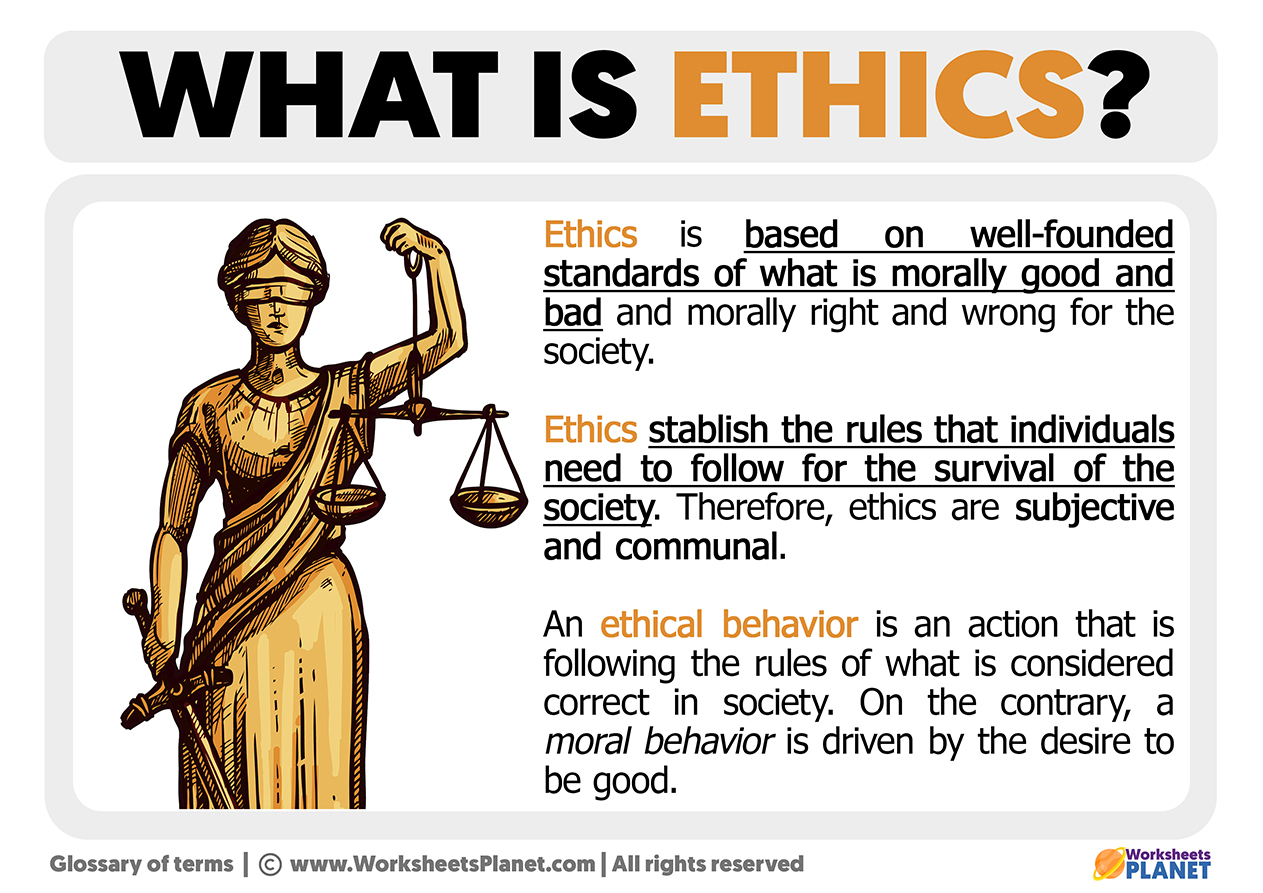Ethics is a branch of philosophy that explores and analyses the nature of morality and our moral behavior. It is the systematic study of what is right and wrong in our actions and the impact that our actions have on others and society as a whole. Ethics help us make moral decisions and understand our obligations and responsibilities to others.

Ethics can be traced back to the ancient Greek philosopher Aristotle, who believed that ethics is about achieving eudaimonia, which translates to human flourishing or happiness. Since then, various ethical theories have been developed and expanded upon, each with its own unique approach to morality.
For instance, utilitarian ethics focuses on the greatest good for the greatest number of people, whereas deontological ethics emphasizes that certain actions, regardless of their outcomes, are inherently right or wrong. Virtue ethics highlights the importance of developing virtuous character traits and acting in accordance with those traits.
Every day, people are faced with ethical dilemmas and moral quandaries. Ethics plays a crucial role in addressing these challenges, particularly in professional fields such as medicine, business, law, and technology. It ensures that professionals adhere to a certain standard of conduct and make decisions that prioritize the welfare of their clients and customers.
However, ethics can also lead to disagreement and conflict, particularly when people hold differing moral views. In such cases, it is important to approach the situation with empathy, respect, and a willingness to find common ground.
Ethics is a vital aspect of human life and plays a critical role in shaping our behavior, relationships, and society. By reflecting on our moral values and principles and applying them in our daily lives, we can cultivate a more compassionate and just world for all.

